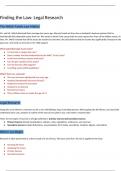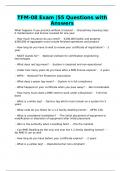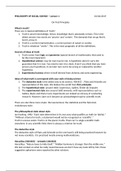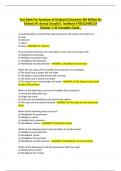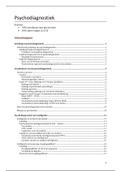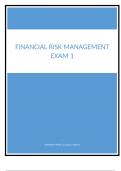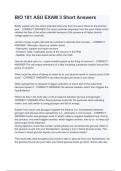The Welch Family Law Matter:
Mr. and Mr. Welch dissolved their marriage two years ago. She just found out from her ex-husband's business partner that he
intentionally hid substantial assets from her. She wants to know if she can go back to court request her share of the hidden assets. At
time, Mr. Welch insisted that all the issues be resolved at one time. She also believes that his income has significantly increased in the
past year, and needs an increase in her child support.
What potential legal issues exist?
● Is it too late to reopen the case?
● Does it matter that the Husband lied to the Wife? To the Court?
● Is info from business partner protected?
● Can she get a portion of his assets?
● Can she increase child support?
● Is existing award within guidelines?
Which facts are relevant?
● The case has been adjudicated two years ago
● Husband intentionally hid assets (fraud?)
● Husband's income has increased
● Husband is an attorney
● Married for 8 years
● Three children who are under the age of 14
Legal Research:
Going into a law library to research can be a very intimidating, long, frustrating process. Before going into the library, you must fully
understand your case, prepare an outline of the sources you plan to use, and create a research plan.
There are two types of sources in all legal collections- primary sources and secondary sources.
● Primary Sources include constitutions, statutes, rules, regulations, ordinances, and case law
● Secondary Sources include dictionaries, encyclopedias, form books, periodicals, treatises, digests, and citators
Before you Begin:
Research is often performed as a direct result of a set of facts. The facts come first. The law is applied to the facts.
● Knowing the Facts
● Analyzing the Issues
● Primary Sources
● Secondary Sources
,Factual comparison usually takes place after the researcher clarifies the client facts and locates case law that may apply to the client's
legal situation. A process of comparison of relevant facts is a good starting place in the legal analysis process.
Once you understand the client's problem(s), you are ready to attempt to identify the issues, or the questions that must be decided b
the court.
Before you do any actual research, you must focus on the relevant facts. The identification of relevant facts may bring up challenges o
questions.
When it's time to start identifying the facts, they fall into one of three categories:
● Relevant Facts- key or significant facts
● Explanatory Facts- facts that help the researcher understand what happened. They are not relevant, in a legal sense, to the iss
● Unnecessary Facts- the factual information I this category is irrelevant to the legal issue.
Beginning the Research:
If you have a general understanding of the area of law to be researched and a good grasp of the relevant legal vocabulary, proceed
directly to the primary sources.- the law
If you are unfamiliar with the area of law, most efficient research begins with the secondary sources.- explain the law, but not actual
the law
Black's Law Dictionary
Cornell School of Law Legal Information Institute
Wex
Bifurcate- to sever from the trial; in family law, it means that the divorce or dissolution may be granted, but the parties will need to
come back to court to adjudicate another issue- for example, their property issues.-dividing a case into two stages for the trial
Legal Encyclopedia- a collection of legal information; a secondary source of law
Finding Tools- the resources used to locate primary and secondary sources
Annotation- a brief summary of a statute or a case
Form Books- a legal resource filled with sample forms and explanations on how and when to use the forms
Law Journals- talk about very specific subjects, not for generalized information; Mississippi Law Journal, Legal Ethics as a Roadblock to
Police Accountability, Lawrence Rosenthal. 92 Miss. LJ 1.
Annotations- notes to reported cases and published statues with cross-references
Law Review- a publication containing articles written by judges, professors, and attorneys; it also contains case summaries written by
law school students
Treatise- a book that reviews a special field of law; a summary of the law o a particular subject
Digest- an index to reported cases, arranged by subject; a short summary of the case provided

